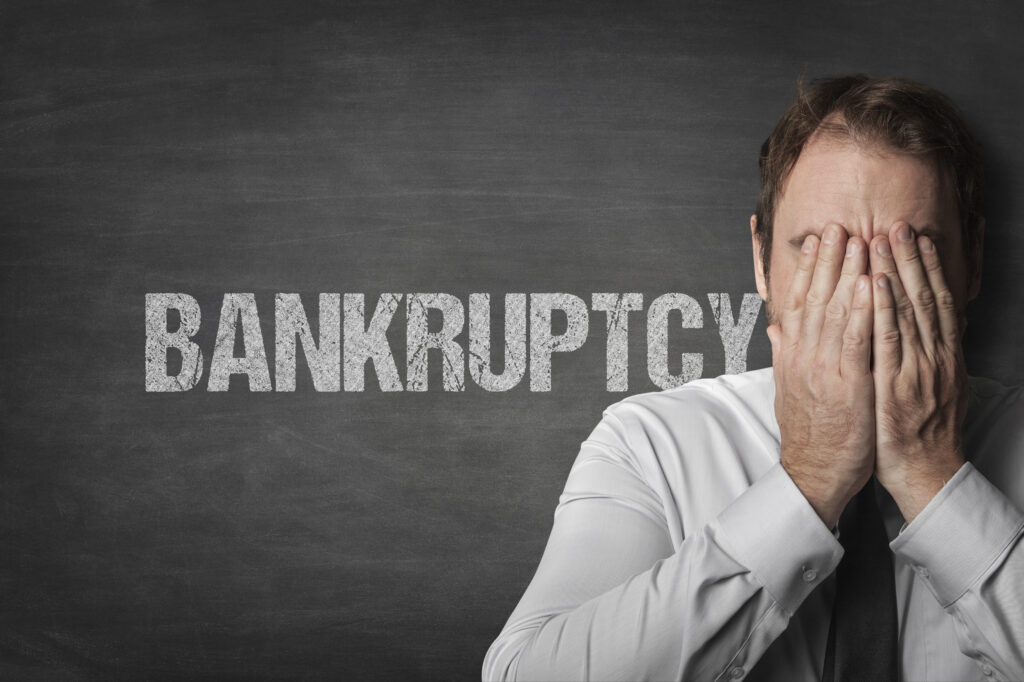
Bankruptcy Straight-Talk for Credit Union Members
Bankruptcy is not a sure-fire remedy for credit union members in severe financial distress. While it can provide an avenue for escaping your promises to repay, it can also have some unintended, disagreeable consequences. I have represented credit unions across four states in US Bankruptcy Courts over the last 40 years. During those decades, I found that too many lawyers who file bankruptcies for credit union members are often not discussing all the consequences with their clients.
None of this article is meant to be legal advice. It merely contains my observations about what happens to those who have been startled at the fall-out when they bankrupt a debt they owe their credit union. Fully informed people usually make better financial decisions. Read on to get the full story. Beware; this will be straight-talk about serious stuff.
Here are three of the worst surprises for members who bankrupt their debts to a credit union:
LOSS OF PRIVILEGES OF SERVICE:
You may still keep your membership, but it will probably have little value. Most credit unions have adopted a policy that permanently denies all privileges of service to members who have caused it any unreimbursed loss. Any debt discharged in bankruptcy has to be considered an unreimbursed loss as soon as your Order of Discharge has been entered. Even if you still intend to repay the debt anyway, that does not change how your credit union must regard your loan on its books. The loss is immediate upon your discharge. As long as the debt remains unpaid, the consequences are permanent.
What does it mean to lose all privileges of service? It means you lose the chance to use the credit union for anything at all, except for your two basic rights of membership:
- You can have one, plain-vanilla savings account
- You can attend the annual membership meeting and vote.
That’s it. Those are your only rights as a member.
Everything else is a privilege, meaning you will lose your credit union checking account, permanently; your credit union credit/debit ATM card will be disabled, permanently; web-access to your credit union account will be disabled, as will direct-deposit and account overdraft privileges. Most people realize that cannot get a loan from a lender they have stiffed in bankruptcy, but most are surprised to discover their credit union is no longer their friendliest financial services provider. Yes, you can resign your credit union membership whenever you want. You may find other lenders, but usually, their terms will be harsh.
If your credit union has adopted this policy (and most of them have), it must enforce that policy uniformly. Otherwise, it could be guilty of discrimination. This means no exceptions. Your bankruptcy will drop off your credit report after 10 years, but your credit union’s memory of the loss you caused will never fade. Bankruptcy can mean the loss of an old and valued banking relationship.
THE CREDIT UNION’S AUTOMATIC LIEN ON DEPOSITS
All the credit unions in Arkansas have charters granted by the federal government. Congress has granted all federally-chartered credit unions an automatic lien on all members’ deposits. That means all the money you keep at a credit union is considered collateral for all debts you owe that credit union, except for credit card debts. You do not have to agree to the lien. You do not have to be separately informed of it. It is the law, so you are presumed to know it. And of course, having just read it, now you certainly know it.
What Does This Mean?
It means as soon as you file bankruptcy, your credit union will find out about it. (If you owe it any money, you cannot “leave out” your credit union from your bankruptcy). As soon as your credit union finds out about your bankruptcy, it can freeze all the deposits you had on hand across all your deposit accounts at the time of your bankruptcy. That means all of them: savings, checking, CD’s, Christmas club, joint accounts owned with others, everything. Sooner or later, the frozen money can be taken from the account and applied to your non-credit-card loans, whether you agree or not. In the meantime, your checks will bounce, and your automatic bill payments will stop. Bounced checks mean NSF fees. Auto-payment stops can mean overdue bills and additional late-fee penalties.
Why is the Credit Union Doing This?
The Credit Union freezes your deposits because it is trying to mitigate the loss your bankruptcy has caused it. It owes a duty to its members to try to get back as much of their money from you as it can. Congress gave it the right to look to your deposits as its collateral, even if your bankruptcy lawyer did not warn you about it. Remember: bankruptcy was the first punch thrown, but not the last. Just like politics, “bankruptcy ain’t beanbag.”
THE CREDIT UNION’S CROSS-COLLATERAL CLAUSE
Do you have a car loan with your credit union? Do you also have a credit card with the same credit union? How about overdraft privileges, or some other sort of debt (except a mortgage loan)? If so, there is a very good chance that tucked into the terms of your car loan note is a “cross-collateral clause.” This clause is a convenient tool that most credit unions enjoy.
The clause usually reads something like this:
“Collateral securing this loan will also secure any other debts I owe the credit union, now and in the future, except a debt secured by my residence.”
Translation: Default on your credit card or your signature loan, and the credit union can repossess your car and sell it, even if your car payments are up-to-date. No, the credit union didn’t have to separately inform you of this provision when you took out your car loan. No, the credit union doesn’t have to repossess your car upon default of your credit card or signature loan, but it can.
If you bankrupt, you may find the credit union is unwilling to allow you to repay just your car loan and not the other loans you owe it. Unless and until all the loans are repaid, it can retain the lien on your car, and even enforce it if it finds that it must.
Moral of this story: In bankruptcy, don’t try to “cherry-pick” which loans you will repay your credit union and which you will not. Talk to your credit union instead before you file bankruptcy. Otherwise, you could find yourself walking to work instead of riding.
That’s it. No more. You knew this would be a sobering read. I intended it to be. Bankruptcy is as serious a financial decision as you can make in your adult life. Know when to ask plenty of pointed questions first.
Make your lawyer earn that fee.

